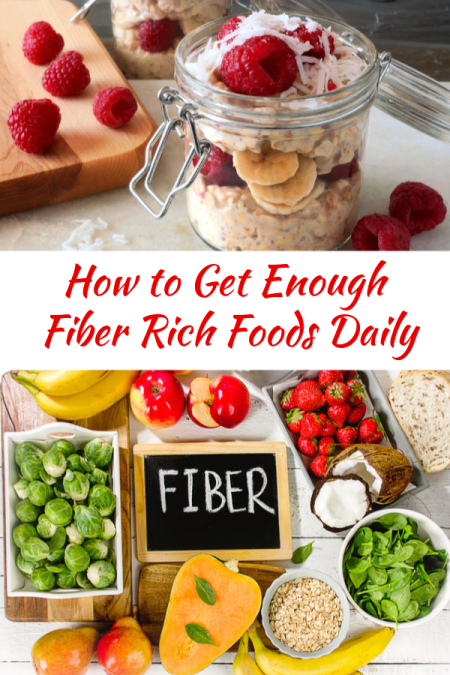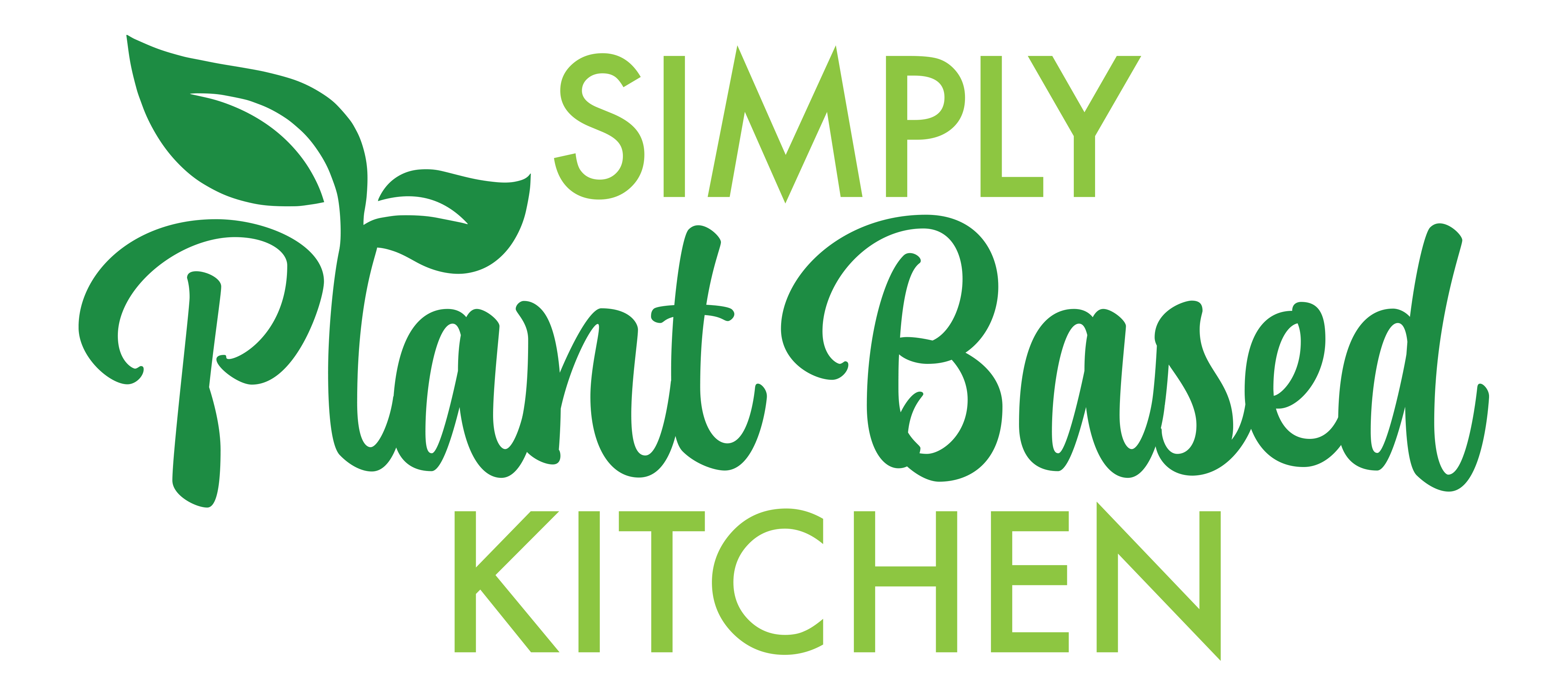
Fiber is such an important dietary component to get enough of every day and yet so many of us aren’t even coming close. Low fiber intake has been associated with colon cancer, heart disease, breast cancer, constipation, hemorrhoids, obesity, and more. Some people even think that steak is a good source of fiber. No joke! Spoiler alert: only plants contain fiber. But the Standard American Diet, with most of the calories coming from animal products and processed foods, is VERY low in fiber. Populations across the globe that consume the highest amounts of fiber daily, do NOT have the chronic diseases that plague our western society.
Maybe instead of such a focus on protein, we should be focusing on getting more fiber!

What is dietary fiber?
Dietary fiber is the non-digestible part of carbohydrates. It is present in whole unprocessed plant foods. Processed foods typically has most or all of the fiber removed.
Fiber is very important in preventing constipation, which many American’s struggle with because they eat mostly processed foods & animal products, which contain no fiber.
Fiber is also the FOOD for our good gut bacteria and helps them to grow and diversify. Even though we don’t digest the fiber directly, our gut bacteria do and they help produce many important chemicals for our body and protect the lining of our intestines. Dietary fiber acts as prebiotics for our microbiome which is essential for good health.

What is the recommended daily intake of fiber?
Populations in the world that are consuming the highest fiber diets have the lowest levels of chronic disease and typically are the longest lived.
The MINIMUM Adequate Intake of fiber is 25 grams for adult women and 38 grams for adult men. But the International Life Sciences Institute says that 32-45 grams of fiber a day may be needed to prevent constipation.
Most American’s only get 15-17 grams daily. Yikes!
Nutritional anthropologists have actually studied the fossilized poo or “paleo poo” from pre-agriculture people and estimate their daily intake of fiber was 70-150 grams of fiber a day! Clearly our bodies were designed to work with MUCH more fiber than most of us are getting. Even more than the minimum recommended.
Vegan diets typically have much higher fiber intakes than the Standard American Diet. Studies from 1984-2005 show that vegans average 35-50 grams of fiber daily. A typical Whole Food Plant Based centered diet is much higher than that!

97% of Americans don’t get enough fiber
Fiber is like nature’s broom to sweep out the junk and keep things moving.
And yet 97% of Americans don’t get enough fiber because the majority of the calories come from animal foods & processed foods. I couldn’t believe it was this high!
It’s no wonder that so many people suffer from chronic constipation, hemorrhoids, and anal fissures. A low fiber diet is even associated with colon cancer, breast cancer, and prostate cancer.
Dietary fiber is also important for cardiovascular health and blood sugar control. Fiber binds to cholesterol and helps remove it from our bodies. Fiber also helps to delay stomach emptying so that blood sugar doesn’t spike rapidly.
These high protein, low carbohydrate keto diets are DANGEROUS. If you are eating low carbohydrates, there is no WAY you are getting enough fiber, so this is only increasing your risk of heart disease, cancer, constipation, diabetes, breast cancer, and many other chronic diseases in the long term. Just because a diet can help you lose weight in the short term, doesn’t mean that you are improving your health. Smoking & chemotherapy will help you lose weight, but I wouldn’t recommend that either….
Click here to get a FREE printable list of the top 50 highest fiber foods here!
Only plants contain fiber
Did you know that only plants contain fiber? There are many people that think that animal products like steak or eggs contain fiber. Maybe you do?
But ONLY plants contain fiber. No animal meat or animal product contain any fiber at all.
Processed foods that are rampant in our society have most or all of the fiber removed, as well as the nutrients along with it. That’s why there are so many “fortified” foods. It’s because they took out all the good stuff and added just a few back in synthetically to prevent vitamin deficiencies. But they didn’t put NEAR the thousands of phytochemicals there are back in.

The benefits of getting enough fiber
This post may contain affiliate links for your convenience. If you click on a link and make a purchase, I may receive a small commission at no additional cost to you. I only recommend products I love and it helps keep this website running!
There are many benefits of fiber including it’s ability to help us feel full for longer and it comes with so many vitamins & minerals along with the whole package.
Fiber helps to lower cholesterol and prevent constipation. Because fiber keeps things flowing efficiently, this helps to flush toxins out of the body more quickly as well so they don’t hang around and cause problems.
Fiber even helps to remove excess estrogen which can help to reduce the risk of breast cancer and prostate cancer.
Interestingly, fiber may also contribute to lower rates of depression and mental illness. Fiber feeds our gut microbiome and what many people don’t know is that our gut bacteria are responsible for helping our cells that line the intestine to produce the neurotransmitters serotonin & dopamine. In fact, our gut microflora are responsible for helping to produce 90% of the serotonin & 50% of the dopamine. These are important neurotransmitters for our brain health and mental well being.
Learn more about fiber and health from Becoming Vegan: The Complete Reference to Plant-Based Nutrition by Brenda Davis, RD & Vesanto Melina, MS, RD.

Getting enough fiber helps weight loss
One of the best benefits of fiber to dieters, is that it helps aid in weight loss in a variety of ways.
First of all, fiber from whole plant foods bulks up your food so you eat larger serving sizes, with fewer calories. Your stomach stretch receptors are activated and fiber slows emptying from your stomach so you stay satiated for longer. This also helps to regulate blood sugar levels so you don’t have the mid-afternoon munchies.
Secondly, fiber also helps to “put on the brakes.” When fiber is detected all the way down in the last part of the small intestine, called the ileum, it activates the “ileal brake” and puts on the brakes by curbing our appetite.
Thirdly, fiber literally pulls calories out of our body along with it. Fiber traps sugars and fat, so you absorb less of the calories that you eat. Maybe even as much as 10-15% of calories on a high fiber diet aren’t absorbed!
Lastly, as we have learned, fiber feeds our important gut bacteria or microflora. When the gut bacteria digest the fiber, they produce short-chain fatty acids. These short-chain fatty acids stimulate the production of leptin, the appetite suppressing hormone. Fiber can also suppress our ghrelin levels, which is the appetite-stimulating hormone.
Wow, that is FOUR different ways that fiber helps control weight gain & aids in weight loss!
So the BEST diet to help you lose weight, suppress appetite, and not feel hungry all the time, is a diet RICH in FIBER!!! Again more reasons to eat a high fiber, whole food plant centered diet.
Read more about how fiber affects weight loss in Dr. Greger’s book, “How Not to Diet.”

Fiber supplements are not the same
Fiber supplements are everywhere, like Metamucil and Benefiber. And while there may be some benefits, it is NOT the same as getting fiber from whole unprocessed plant foods. This is because fiber from whole plants also come with all the vitamins, minerals, antioxidants, and phytochemicals.
There are also thousands of types of fiber in plants. Synthetic or isolated fiber are only a few different types and many are not digested by our gut bacteria which can affect the health of our microflora.

The best sources of fiber rich foods
- Lentils
- Split peas
- Beans, like black beans, chickpeas, kidney beans
- Berries, like blackberries, raspberries, strawberries, & blueberries
- Pears, apples, oranges
- Whole Grains, like steel cut oats, old fashioned oats, pearled barley, and whole grain pasta
- Brown rice & Black rice
- Quinoa
- Greens, like broccoli, kale & spinach
- Avocados
- Sweet potatoes & skin on potatoes
- Nuts & Seeds
- Pumpkin puree
- Prunes & apricots
- Raisins
- even Dark Chocolate 😍
- and more!
Click here to get a FREE printable list of the top 50 highest fiber foods here!
How to get enough fiber
A Whole Food Plant Based Diet is a high fiber diet naturally. Even just centering your diet around whole plant foods can get you moving (literally) in the right direction!
My husband and I decided to do a fiber challenge and track our fiber consumption. Our goal was to be well over the recommended minimums of 25 grams & 38 grams of fiber respectively. I decided to make my goal 40 grams and he made his 50 grams of fiber each day.
Well, let me just say that we BOTH were knocking our goals out of the park every day without even trying hard! Just by eating a variety of fiber rich, whole plant foods, I was getting 50-60 grams of fiber and he was getting 60-70 grams of fiber daily! Woah!
We had NO problem with going to the bathroom…. it was so quick and easy that I didn’t even have time to check Facebook! If you aren’t going number 2 daily, then you are probably constipated….
Fiber Rich Recipes
Most all whole food plant based recipes are going to be high in fiber. Here are some simple & delicious fiber rich recipes to get you started:
- Slow Cooker Curry Red Lentil Soup
- Peanut Butter Cookies made with LENTILS!
- Vegan Black Bean & Avocado Quesadillas
- Vegan Black Bean & Spinach Enchiladas
- Southwestern Potachos
- Easy Homemade Muesli
- 5 Easy Chia Seed Pudding Recipes
- How to Made Buddha Bowls
- Healthy Oatmeal Raisin Cookies
- Double Chocolate Chip Waffles
- One Pot Creamy Pumpkin Pasta
- Crispy Baked Tofu Marinara
- Quinoa Stuffed Acorn Squash
Join Simply Plant Based Kitchen and get my list of the top 50 High Fiber Foods for free. Fill out the form below!







I’ve always read that pearled barley is NOT a whole grain and that you need to look for hulled or hull-less barley. Has something changed?
Great question! Here is what the Whole Grain Council says:
“Although it is technically a refined grain, it’s much healthier than other refined grains because (a) some of the bran may still be present and (b) the fiber in barley is distributed throughout the kernel, and not just in the outer bran layer.”